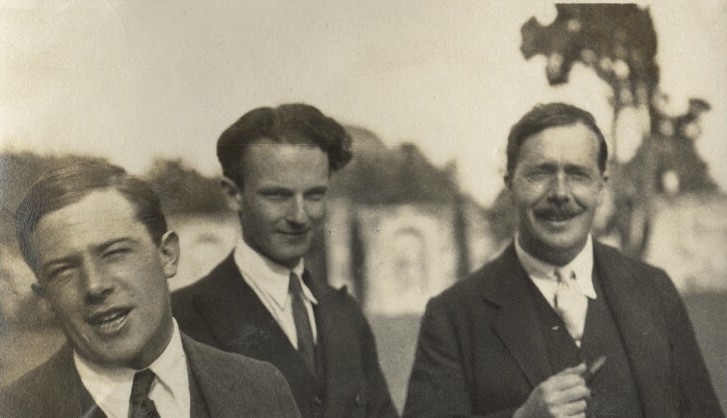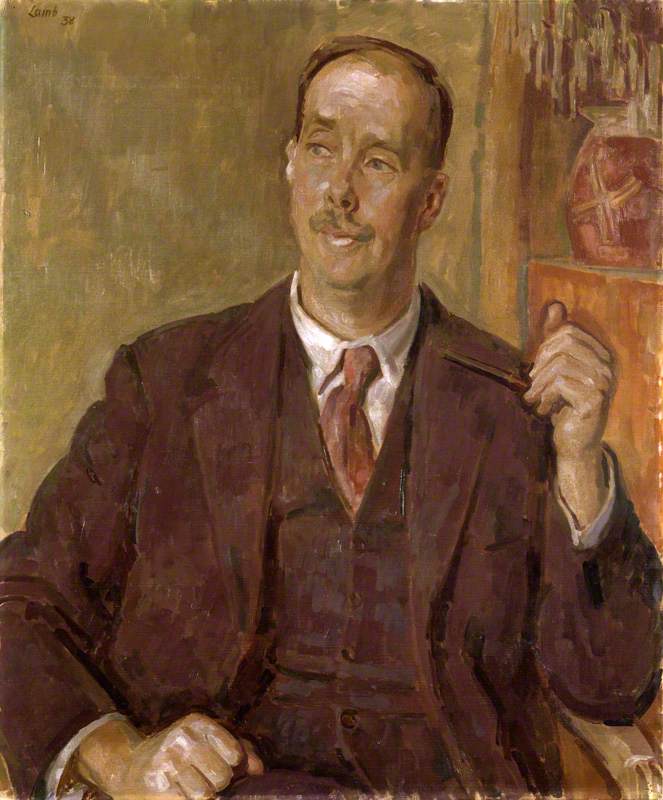

Queer Places:
Clifton College, 32 College Rd, Bristol BS8 3JH, Regno Unito
Harrow School, 5 High St, Harrow HA1 3HP, Regno Unito
University of Oxford, Oxford, Oxfordshire OX1 3PA
Golders Green Crematorium, 62 Hoop Ln, London NW11 7NL, Regno Unito
 Leslie
Poles Hartley CBE (30 December 1895 – 13 December 1972) was a British novelist
and short story writer. Although his first fiction was published in 1924, his
career was slow to take off. His best-known novels are the Eustace and
Hilda trilogy (1944–47) and The Go-Between (1953). The latter was
made into a film in 1971, as was his 1957 novel The Hireling in 1973.
Leslie
Poles Hartley CBE (30 December 1895 – 13 December 1972) was a British novelist
and short story writer. Although his first fiction was published in 1924, his
career was slow to take off. His best-known novels are the Eustace and
Hilda trilogy (1944–47) and The Go-Between (1953). The latter was
made into a film in 1971, as was his 1957 novel The Hireling in 1973.
Leslie Poles Hartley was born on 30 December 1895 in Whittlesey, Cambridgeshire, the son of Bessie and Harry Bark Hartley, a solicitor and JP.[1] He had two sisters, Enid and Annie Norah. While he was young, the family moved to Fletton Tower,[2] a small country estate near Peterborough. Hartley was educated in Cliftonville, Thanet, then briefly at Clifton College, where he first met Clifford Henry Benn Kitchin, then at Harrow. In 1915, during the First World War, he went up to Balliol College, Oxford, to read modern history, and there he befriended Aldous Huxley. This was a time when most of his contemporaries were volunteering for the armed services instead of pursuing university careers.
In 1916, with the arrival of conscription, Hartley joined the army, and in February 1917 he was commissioned as an officer in the Norfolk Regiment,[3] but for health reasons he was never posted overseas for active duties. Invalided out of the army after the war, he returned to Oxford in 1919, where he gathered a number of literary friends, including Lord David Cecil.

L.P. Hartley by Henry Lamb
Clifton College, UK
Some of Hartley's early work was published in Oxford Poetry in 1920 and 1922. In 1920 he edited Oxford Outlook, with Gerald Howard and A. B. B. Valentine, and in 1921 with Basil Murray and Christopher Hollis. At this time he was introduced by Huxley to Lady Ottoline Morrell. Kitchin, who was also then at Oxford, introduced him to the family of H. H. Asquith, and Cynthia Asquith became a lifelong friend. Despite being named after Leslie Stephen, Hartley always belonged to the Asquith set and was rebuffed by the Bloomsbury group.
After his years at Oxford, Hartley became a book reviewer. Although he enjoyed rapid social success, his career as a writer failed to take off, and he was unhappy. In 1922 he suffered a nervous breakdown. Soon afterwards he started spending much of his time in Venice, and he continued to do so for many years. Possibly a homosexual, Hartley was not open about his sexuality until toward the end of his life.[4] Hartley regarded his 1971 novel The Harness Room as his "homosexual novel" and feared the public reaction to it.[5]
In 1947 Hartley was awarded the James Tait Black Memorial Prize for his novel Eustace and Hilda, while his 1953 novel The Go-Between was joint winner of the Heinemann Award. He was appointed a Commander of the Order of the British Empire in the 1956 New Year Honours.[6]
Hartley died in London on 13 December 1972 at the age of 76.
My published books: